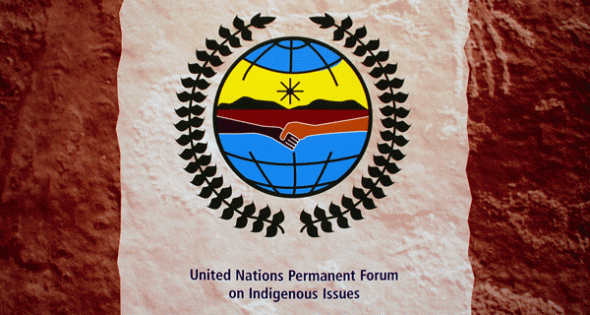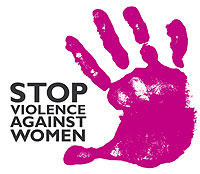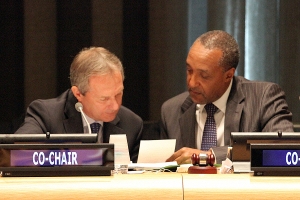NYU panel discussion
The Razom Sponsored ‘White Papers’ were put together in a collaborative effort to assist government, media and civil society to understand what has happened in Ukraine from a legal perspective and to predict and prepare for what will happen next.
Ms. Ivanna Bilych, co-author of the white papers, reiterated the illegality of the Crimea referendum, which breaches the Ukraine Constitution, territorial integrity and voters’ rights. The referendum was completed in just ten days, holding citizens at gunpoint, clearly violations of democracy and international law.
Mr. Alexander Gudko explained that the closest precedent is the Turkey and Northern Cyprus annexation, which was not recognized by the international community as a separate state and therefore this legal framework and response should be exercised again for the Crimean situation.
Mr de Moura Sena reminded the meeting of the energy ties between Russia and Ukraine as Russia builds a new pipeline for natural gas. Russia would face much higher development costs if the pipe were built along the deep seabed, rather than using the Crimean coast. The tensions surrounding European energy needs and Russia’s ability to provide this energy are central to this Crisis.

A key element to the Crimean situation is Russia’s violation of the Budapest Memorandum on security assurances, signed by all members of the Security Council and Ukraine. It was issued to ensure Ukraine would forfeit its nuclear weapons in return for complete political independence and freedom from threats or use of force against territorial integrity.
Dr. Paul Goble declared that Vladimir Putin has disregarded international law and human rights on his own personal agenda for power and expanding the Russian empire. Dr. Goble emphasised that a major step for western nations should be to provide alternative Russian language entertainment and news, to replace the existing Moscow TV. Moscow TV, being the Russian language entertainment monopoly, is manipulated to destabilise neighbouring countries in subversive attacks ordered from the Kremlin.
Meeting Title: Evolving Crisis in Ukraine and its Global Implications
Speakers: Mary Holland of NYU School of law, Ivanna Bilych General Counsel for Razom, Paul Goble expert in the post-Soviet region, Alexander Gudko and Matheus de Moura Sena co-author of the White papers, Giorgi Kvelashvili Senator Counselor for Georgia at the UN and Adrius Kalindra from the OSCE.
Location: NYU School of Law, New York
Date: 29 May 2014
Written by WIT representative: Sophia Griffiths-Mark




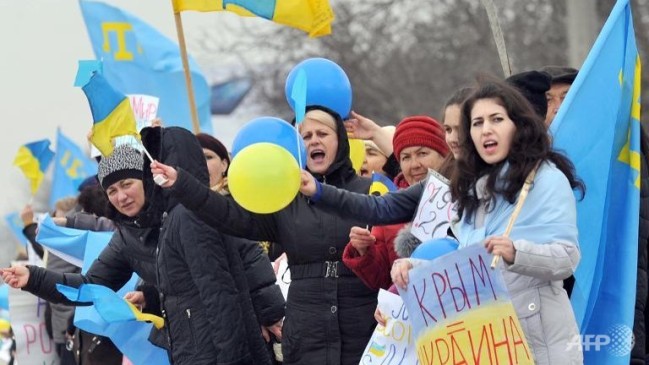
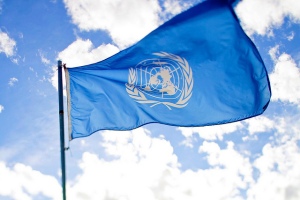
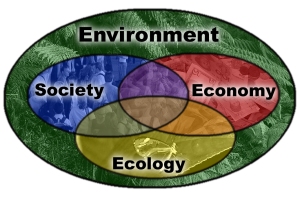 Co-Chairs, H.E. the Ambassador of Kenya and H.E. the Ambassador of Hungary, gave a brief summary of the progress from the fourth session of the Intergovernmental Committee of Experts on Sustainable Development Financing, and the way forward leading up to mid-august when the proposal will be given to the attention of the secretary general. The committee’s major concern is quantifying needs across all three areas of Sustainable development especially the social and environmental elements. Quantifying the financial need of socio-climates amounts to an immense task however H.E. the Ambassador of Kenya was confident the committee would be able to reach a consensus on an effective financial document and policy implementation in the near future.
Co-Chairs, H.E. the Ambassador of Kenya and H.E. the Ambassador of Hungary, gave a brief summary of the progress from the fourth session of the Intergovernmental Committee of Experts on Sustainable Development Financing, and the way forward leading up to mid-august when the proposal will be given to the attention of the secretary general. The committee’s major concern is quantifying needs across all three areas of Sustainable development especially the social and environmental elements. Quantifying the financial need of socio-climates amounts to an immense task however H.E. the Ambassador of Kenya was confident the committee would be able to reach a consensus on an effective financial document and policy implementation in the near future.